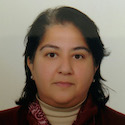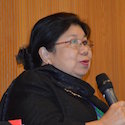Engaging through NGO fora and consortia: Follow-up questions
On 20 July, PHAP and ICVA hosted an online session on NGO fora and consortia exploring the functions of these structures in empowering local and international NGOs in humanitarian response and fostering their participation in coordination mechanisms and policy discussions.
This third session of the learning stream on humanitarian coordination, jointly organized by PHAP and ICVA, featured presentations from Raphael Gorgeu (ICVA), Rolla Hinedi (Syria Relief), Abdurahman Sharif (Somalia NGO Consortium), and Pansy Tun Thein (Local Resource Centre).
After their presentations, the guest experts had the chance to discuss some of the questions from participants (you can listen to this in the event recording) and have provided answers to the rest of the questions in writing, which you can now read on this page.
“How can we make sure that an NGO consortium does not operate outside existing coordination mechanisms in the field?”
- Grant Manager, UN system, Switzerland
 Rolla Hinedi
Rolla HinediAs several actors are involved in a cross-border response, coordination happens both at host country level (Turkey in our case) and inside Syria, usually through the clusters. However, in case of an emergency (e.g. in evacuations), NGOs take the lead through a consortium, with UN providing support.
 Raphael Gorgeu
Raphael GorgeuNGO consortia and fora belong to their members. It is therefore for their members to orient and guide the action and approach of a consortium or forum. For ensuring proper coordination with other existing structures, it is therefore important to understand correctly the mechanisms in place, and identify comparative advantages that a consortium or forum could have.
"How can NGO fora and consortia can be used to reinforce community engagement at the local level – especially, in areas controlled by non-state armed groups?"
- Senior Communications Officer, INGO, Switzerland
 Pansy Tun Thein
Pansy Tun TheinIn the case of Myanmar, community engagement can best be achieved through involvement of Community-based Organizations, which are normally located within the community and hence have the trust of the community members. This is most effective especially in non-government controlled areas.
 Rolla Hinedi
Rolla HinediIn the Syria response, INGOs are in most cases not present on the ground, and therefore only Syrian NGOs engage at the local level, having their staff coming from the same community. NGO fora and consortia assist in providing one common voice instead of several individual ones, but the direct involvement comes from within the community itself.
 Raphael Gorgeu
Raphael GorgeuMost fora include in their membership national and local NGOs. By giving more space to these actors, and by promoting better dialogue between national and local NGOs and international NGOs, NGO fora could be instrumental in reinforcing engagement at community level.
"Are NGO consortia and fora aware of the Grand Bargain and Charter for Change (C4C) processes regarding local leadership? And are they making efforts to socialize these concepts and ideas with their members and local organizations in their corresponding countries? What are the good practices on this?"
- Partnership and Capacity Development Adviser, INGO, India
 Pansy Tun Thein
Pansy Tun TheinIn the case of Myanmar, many local NGOs are aware of the Grand Bargain and C4C initiatives because we often discuss about these initiatives at the bi-weekly Local NGO Forum. However, more needs to be done in order to reach out to the local NGOs and CSOs at the sub-national level.
 Rolla Hinedi
Rolla HinediFrom the Turkey response, the Grand Bargain has not been discussed widely with the humanitarian community. INGOs are usually involved through either their regional or international offices, while there is still a lot of work to be done for local NGOs who are not very aware nor involved in the Grand Bargain. Only some of the major local NGOs do have the capacity (in terms of staff and funding) to be involved.
 Raphael Gorgeu
Raphael GorgeuThe knowledge and understanding that fora have of global initiatives such as the Grand Bargain or Charter for Change vary according to context. But fora, if they are properly empowered by their members, are a fantastic tool to bring comprehension of global processes at field level, and help translating global commitments into action. Ensuring a better link between fora and consortia like ICVA is a possibility to better connect policy and practice.
"Are there currently any studies done on successful models of trust building and engagement among NGOs, INGOs and other actors such as governments and the private sector at country and regional levels?"
- Partnership and Capacity Development Adviser, INGO, India

Rapahel Gorgeu
The localization agenda will most likely lead to different studies helping NGOs to better collaborate together. Few initiatives exist already such as the Charter for Change. ICVA has also launched in April 2017 a program looking at NGO engagement with host governments.
“In the Arab region, we are witnessing the increasing institutionalization of a significant number of CSOs, each one having its specific mandate and being organized according to its country’s structures, and with its own context. How can we create a regional structure led by CSOs and of global relevance, which will aim for better coordinating all our efforts and to have stronger advocacy inside and outside our countries of operation? What are the first steps to follow and your recommendations based on your experience?”
- Consultant, Oman

Pansy Tun Thein
Our experience has been that if we have a common interest on a specific theme, we can organize a CSO-led regional structure, such as localization, which is of interest to all the CSOs in the region. The issue of localization can also be used as an advocacy strategy with governments and donors both in-country and in the region. The first step is to organize CSOs in the country to come together to advocate on localization in this case, and then link up to other CSO networks in the region.

Rolla Hinedi
At the moment, there are efforts done to bring together Syrian CSOs inside and outside Syria. However, as we are still operating in an active conflict area, the issue is not currently given its right priority. We are still behind trying to rally in-country CSOs before thinking of moving regionally, then globally.
“How do NGO forums involved in the Syria response ensure that the aid coming from NGOs operating from Turkey is actually directed to assist populations affected by the Syria crisis?”
- Director, local NGO, Libya

Rolla Hinedi
In the case of Syria, monitoring systems are very strong. As many donors are involved, requirements for “guarantees” are very tough to ensure aid reaches the right beneficiaries. NGOs usually have big monitoring, evaluation, accountability & learning (MEAL) teams inside and several cross-border staff. In our case, colleagues from Turkey visit projects inside Syria regularly to check on the implementation.
You can access the rest of the Q&A as well as further resources on the event page.